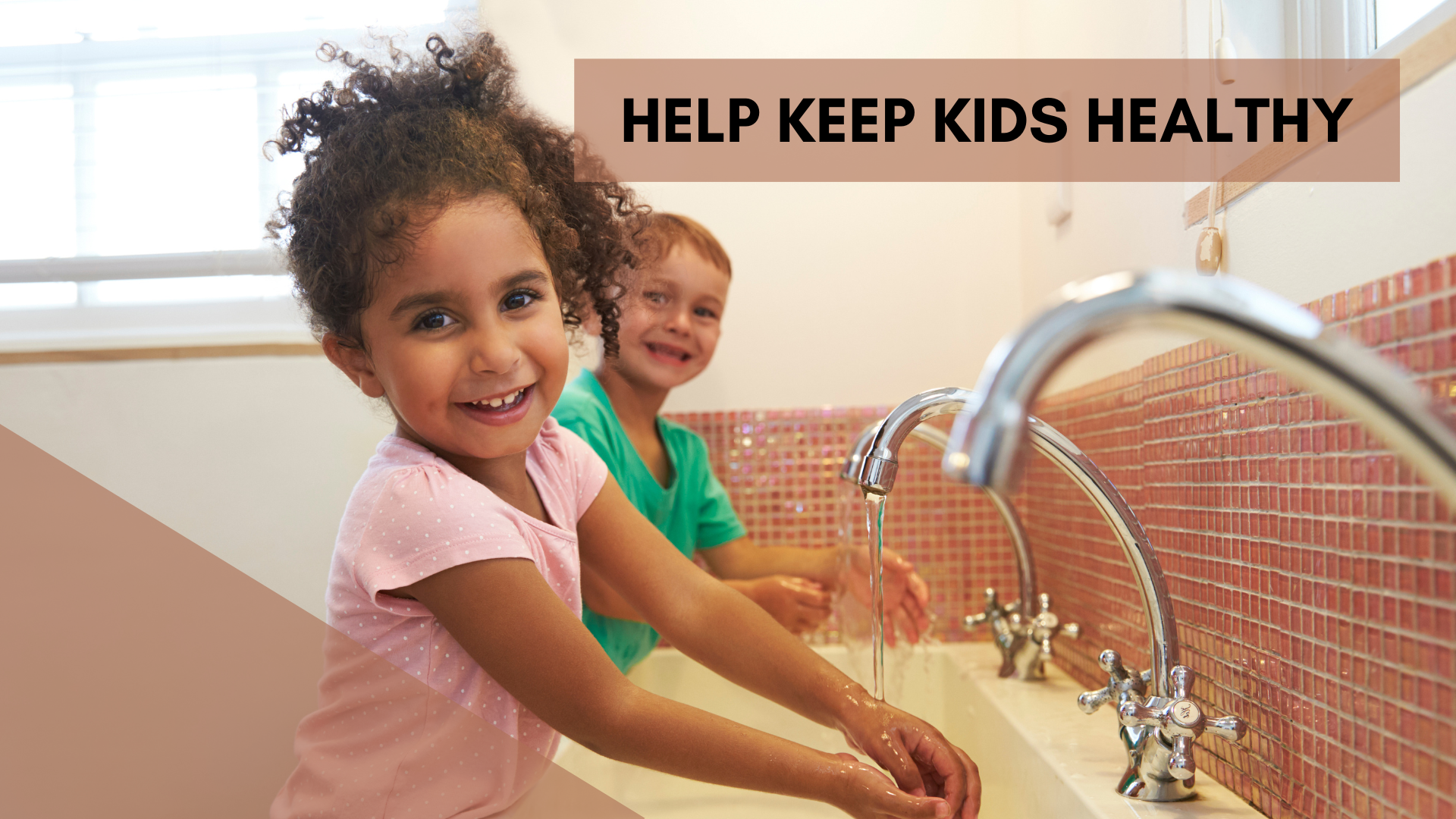As kids are back in school, colds and illnesses tend to increase. Parents, let’s help lower these cases by teaching our children how to stay healthy. We have tips on everything from nutrition to sleep and anxiety. These tips are sure to help you set your child up for a healthy, successful year.
Ease School Anxiety
School anxiety or nervousness is very common among students. The most important thing parents can do is to acknowledge the fear. Ignoring anxiety or stress related to school can often make their feelings worse.
- Talk about your child’s interests. If your child loves art, for example, talk with your child about fun art projects you think they will do at school.
- Speak to your child’s teacher. Discussing any concerns with their teacher may help ease nervousness.
- Discuss what your kids are nervous about and ways to work through it. If it’s a school project they need to present to the class, for example, go over the outline and walk through the speech to help your child become more confident with the material. Being there to help guide them through may help alleviate some anxiety when they do it alone.
- Let your child know they are not alone with their feelings. Parents, discuss your own school anxiety with your children and ways you worked through it.
Acknowledging and easing any anxiety can make the school experience more enjoyable.
Provide a Healthy Breakfast and Lunch
For breakfast, a protein-rich meal helps children focus and keeps blood sugar more stable. Many parents struggle with finding protein sources when the morning is rushed. Nut butters, yogurt, milk, and eggs are good healthy options in the morning, combined with whole grains and fruit.
For lunch, whole grains, plus a serving of fruits and veggies, is a great plan. You may also consider string cheese or yogurt to bump up the protein.
Keep Kids Active After School
Children often sit in the classroom most of the day with little PE and recess time. Kids also may have homework after school, so it can be difficult (but not impossible) to fit in fitness.
Here’s how you can make sure your kids get exercise after sitting all day at school:
- Keep your fitness level up. Oftentimes parents go home after a long day and just ‘veg out.’ Exercise is a great stress reliever and is key to managing many chronic diseases. A walk, riding a bike, or putting on some music and dancing around the house are easy ways to get some exercise in! Yoga is a great family activity, as well.
- Go on an outdoor adventure. Here are some easy ways to get a breath of fresh air and have some fun:
- Check out parks for a hike.
- In the fall, complete a corn maze.
- Try a scavenger hunt.
- Enjoy sports. Getting kids interested in sports not only builds fitness but also teaches them teamwork and self-confidence. Check out local sports programs and park districts with seasonal as well as year-round sports.
Overall, your kids want to spend time with you, so get active with them. It will benefit you as much as it does your kids.
Avoid Common Colds and Illnesses
Going to school exposes kids to a lot of germs. It will not be prevented, but you can reduce their chances of getting and spreading common bugs.
Here are some simple steps to keeping children healthy:
- Teach them to cover their mouths when coughing and sneezing
- Encourage hand washing
- Keep children home for 24 hours if they have a fever
- Take a multivitamin each day
A Good Night’s Rest
Sleep requirements differ from person to person, but there are some general guidelines to keeping healthy sleep habits. Most school-age children need between 9 and 12 hours of sleep per night, while most teens require 8 to 10 hours.
Here’s how you can help them get the hours they need:
- Figure out what time a child will need to get up for school, then come up with a bedtime that will allow an appropriate amount of sleep.
- Adjust bedtimes as a child’s sleep requirements change. Children who fall asleep during class or in the car, or who have difficulty waking up in the morning, likely need more sleep. Adolescents should avoid afternoon naps, which tend to interfere with falling asleep at night.
- Make sure your child’s sleep environment is appropriate. The ideal sleep environment is dark, quiet, and a comfortable temperature. Some children may sleep best with a fan or white noise machine. Be sure to avoid electronics in the bedroom at night. TV or video games before bed can cause difficulty falling asleep. Also, it is best to charge devices in a common living area so they aren’t being used after bedtime.
- Be aware that difficulty falling asleep or staying asleep can be a sign of a medical problem like depression, anxiety, or sleep apnea. If your child has difficulty with sleep or seems tired despite getting an appropriate amount, it may be worth discussing with your pediatrician.
If you are on the hunt for a new pediatrician check out our Pediatricians Directory.
Set the Stage for a Healthy School Year
Let’s face it, success in the classroom starts at home. You can help your child reach their full potential.
Here’s a recap on how parents can help their children stay healthy:
- Talk to your child about any anxiousness or nervousness they may be having
- Ensure your child has a healthy breakfast and lunch each day
- Be sure they get daily physical activity, such as organized sports when they’re old enough
- Encourage good hygiene and self care, such as hand washing and a multivitamin daily, to help avoid germs
- Make sure they get 9 to 12 hours of sleep, depending on your child’s age
- Limit electronic usage (no more than two hours per day), and require kids to hand over their phones before going to bed
- Encourage them to always try their best










